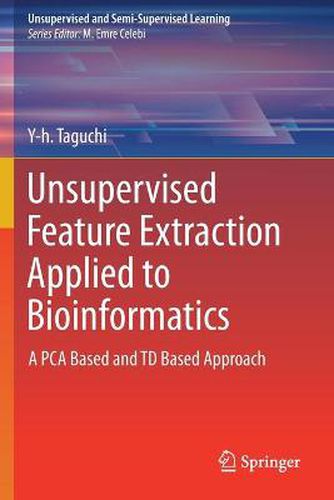Readings Newsletter
Become a Readings Member to make your shopping experience even easier.
Sign in or sign up for free!
You’re not far away from qualifying for FREE standard shipping within Australia
You’ve qualified for FREE standard shipping within Australia
The cart is loading…






This title is printed to order. This book may have been self-published. If so, we cannot guarantee the quality of the content. In the main most books will have gone through the editing process however some may not. We therefore suggest that you be aware of this before ordering this book. If in doubt check either the author or publisher’s details as we are unable to accept any returns unless they are faulty. Please contact us if you have any questions.
This book proposes applications of tensor decomposition to unsupervised feature extraction and feature selection. The author posits that although supervised methods including deep learning have become popular, unsupervised methods have their own advantages. He argues that this is the case because unsupervised methods are easy to learn since tensor decomposition is a conventional linear methodology. This book starts from very basic linear algebra and reaches the cutting edge methodologies applied to difficult situations when there are many features (variables) while only small number of samples are available. The author includes advanced descriptions about tensor decomposition including Tucker decomposition using high order singular value decomposition as well as higher order orthogonal iteration, and train tenor decomposition. The author concludes by showing unsupervised methods and their application to a wide range of topics.
Allows readers to analyze data sets with small samples and many features; Provides a fast algorithm, based upon linear algebra, to analyze big data; Includes several applications to multi-view data analyses, with a focus on bioinformatics.
$9.00 standard shipping within Australia
FREE standard shipping within Australia for orders over $100.00
Express & International shipping calculated at checkout
This title is printed to order. This book may have been self-published. If so, we cannot guarantee the quality of the content. In the main most books will have gone through the editing process however some may not. We therefore suggest that you be aware of this before ordering this book. If in doubt check either the author or publisher’s details as we are unable to accept any returns unless they are faulty. Please contact us if you have any questions.
This book proposes applications of tensor decomposition to unsupervised feature extraction and feature selection. The author posits that although supervised methods including deep learning have become popular, unsupervised methods have their own advantages. He argues that this is the case because unsupervised methods are easy to learn since tensor decomposition is a conventional linear methodology. This book starts from very basic linear algebra and reaches the cutting edge methodologies applied to difficult situations when there are many features (variables) while only small number of samples are available. The author includes advanced descriptions about tensor decomposition including Tucker decomposition using high order singular value decomposition as well as higher order orthogonal iteration, and train tenor decomposition. The author concludes by showing unsupervised methods and their application to a wide range of topics.
Allows readers to analyze data sets with small samples and many features; Provides a fast algorithm, based upon linear algebra, to analyze big data; Includes several applications to multi-view data analyses, with a focus on bioinformatics.